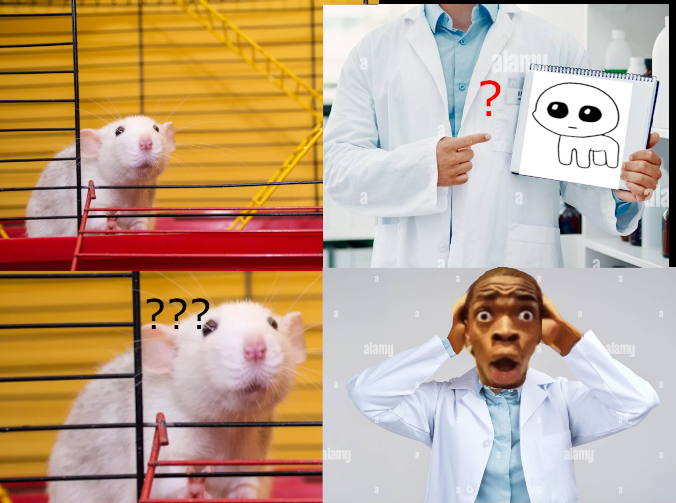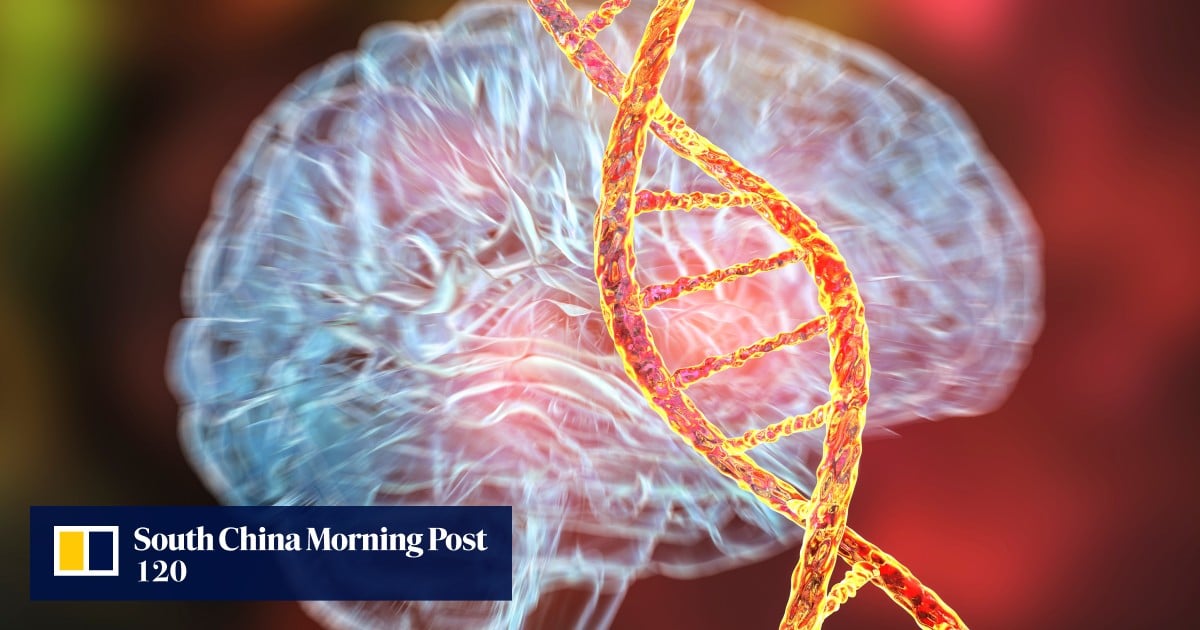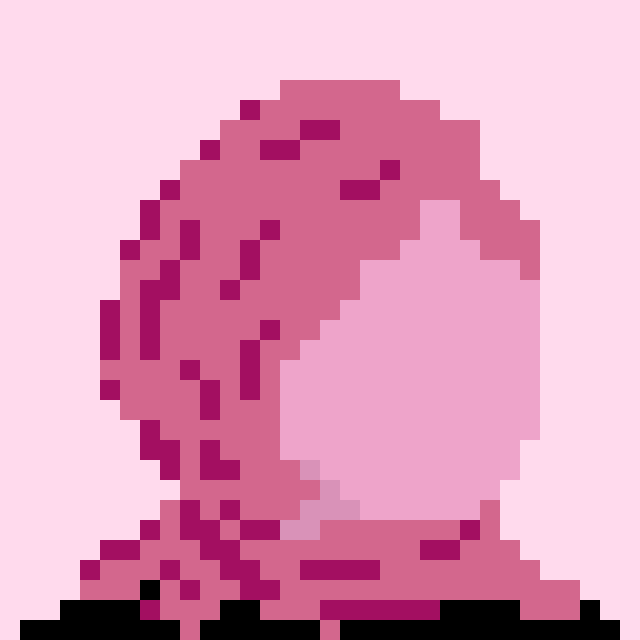Autism jab? Finally, I can stop being neurotyp- oh
I mean the same approach would work the other way too
Using gene editing to steal the “”“autism genes”“” from other peoples’ DNA and paste it into my own like All For One from My Hero Academia
discussion on whether it actually works or not aside, i thought we’ve kinda agreed that ethically its wrong to treat neurodivergence as a disease to be cured. it’s a cool scientific innovation, if only in mice, but i’m hoping that the chinese state and party spend more time deliberating the ethical question of this technology.
deleted by creator
.ee
Bad take factory. Opinion discarded.
Autism is not a disease, and this isn’t really an improvement over wanting to abort autistic fetuses. What happens to children who get this gene therapy but stay autistic? That person is going to have to live their whole life with the realization that their parents tried to change them and failed. And any child who is too old for it, because autism is a developmental disorder, but they have a sibling getting it, will feel equally unwanted.
An autism “cure” is an excuse for why a neurotypical world is hostile towards autistic people, deepening that hostility and saying “Well actually it’s because you’re diseased but that’s okay because we’re going to try to change who you are.”
Do you have the same opinion for someone with a level 3 on the ASD? They will require constant care just to function, and will decrease the material conditions of anyone who takes care of them.
The idea of classifications of autism into high-functioning and low-functioning groups like that was invented by famed Nazi Hans Asperger because he was enthusiastic about eugenics and wanted a method for determining which autistic people should stay and which should go.
Someone who would get classified as “level 3” will 100% have issues that would be classified as diseases, and it makes more sense to treat those diseases first. But for someone with autism and nothing else? Yes I hold the same opinion that they should not have their autism eradicated.
I get your point. Trying to categorize people does create more division.
But we’re not talking about eugenics. We’re talking about treatment. I think the option should be available to autistic people, and it should be their choice to take it.
I think the option should be available to autistic people, and it should be their choice to take it.
Bad analogy, but a similar thought process could be applied to being gay. The reality is that the majority of people researching, allocating funds for or marketing these “solutions” are usually neurotypical themselves. I really don’t want to see how tenuous the definition of “volunteer” is going to be if this ever gets to human trials.
Being gay does not represent an intrinsic substantial detriment to one’s quality of like the way some manifestations of ASD can, e.g. problems with sensory overload. The comparison is completely inappropriate because there is little reason other than homophobia to want to “cure” homosexuality.
To be fair I’m not up to date on the debates among researchers nowadays, but I think it could be possible for there to still be a parallel. Until fairly recently the medical consensus on LGBTQ people was that they were mentally ill, and specific examples of people who were both mentally ill and LGBTQ were used to discriminate against the entire group.
But nowadays we have a different understanding that queer people are just people and the mental illness bit is just because people are often mentally ill (and also because of a lot of correlation with trauma, discrimination, bullying and social pressures).
I wouldn’t be surprised if a similar trajectory happened to autism and the classification of type 2-3 autism got reformulated into separate categories.
But even if my analogy was worse than I though, I think my point still stands. The most enthusiastic supporters of something like that won’t be actual autism advocacy groups, but shit like Autism Speaks, and legislators surely aren’t going to listen to actual autistic people. In the case of autism, they can even claim that “mentally ill people can’t consent” as they’ve already done with sectioning.
Since the title already has “autism jab” in it it’s worth noting that the very first “vaccines cause autism” study did a lot of unsafe, traumatic and anti-ethical tests on autisc children with basically no informed consent even from the parents.
I look forward to the categorization getting more refined.
No one believes ancient antivax hocum on this site, that’s one of the few good things that I think can be said about it without reservation
what about blindness, is blindness too much part of a person for it to be cured, being gay is clearly “incurable” and no one would have a reason to try unless they were servery homophobic, and i think being blind is pretty clearly something that most people would rather do away with clearly divergences from the average are on a spectrum. i would say anything that prevents people from doing things they would like to do are a reasonable target for treatment and cure, and some of the things that are classified as autism are that.
also are u forgetting many people with autism treat their symptoms.
There hasn’t been a historical drive to demonise blind people and their parents to this day, use of racially-driven pseudoscience to justify their mass incarceration and euthanasia or invent a whole conspiracy theory about vaccines that had massive consequences in the previous pandemic. And I’ve never met a blind person who prefers staying blind.
also are u forgetting many people with autism treat their symptoms.
I’m not, I’m only refusing to forget the many people experimented on without consent going all the way back to Hans Asperger, those who don’t wish for this treatment at all, or the historical pushing of drugs like risperidone for autistic children (often with lasting adverse effects) by the pharma-“advocacy group” alliance. And above all I don’t forget we currently live in a world where a bunch of countries can lock people up “for their own good” in medical institutions and apply treatments with barely any consent.
I don’t think it’s too outlandish of a scenario to imagine “experimental gene treatments” being imposed on a bunch of children due to pharma companies preying on desperate parents.
Cures for otherwise blinding conditions do exist (e.g., cataract removal, some gene therapies for retinal diseases) and they’re good. I have a condition that will eventually render me blind and I would seek to be cured if a cure existed for it.
But pursuing/promoting cures for disabilities, including blindness, is not without problems. See, in the US for example, the politics of the National Federation of the Blind vs. the Foundation for Fighting Blindness. Cures also raise class issues and threaten to further marginalize people who won’t or can’t be cured, for whatever reason. In particular, imagining a world in which ‘everyone’ is cured is dangerous and even inherently harmful ideology.
Also, while I have some reservations about the rhetoric and what I think it likely really means, there are blind people out there who will tell you they don’t want to be cured because it’s part of who they are and they’re getting along just fine. Such people do exist. A similar sentiment exists for some within the deaf community as well.
Who are u talking to? I never said there werent any cures for blindness i said it was something most people who have it would rather not have it. i never said there is not conflict between trying to help people with disabilities with cures as opposed to other ways i said that it was reasonable for cures to exists. I never said i wanted a world where everyone was cured, i again said it was reasonable for some of these things to have cures or treatments or for research to be done to find them. And i didnt say that literally every one can agree they would rather be blind i said most people because obviously there is always some who thinks otherwise no matter how big a majority is.
So again who are u talking to, certainly not to what i said and especially not to what i meant cuz i didnt even mean to say anything at all about blindness I clearly meant that this type of research (into autism cures) was ethical (as long as it was only targeting forms or symptoms of autism that people with autism would rather not have). So who is it, at best u completely miss interpreted or ignored what i said or more realistically u are putting some very fucked up and ignorant words in my mouth that i didnt say cuz u know when u reply to me arguing against something i didnt say u are also arguing that i did say it or at least that i meant it. So again what are u doing what are u hoping to do here, this isnt a “fun fact” comment or funny comment u are making an argument but against a position im not even holding.
I get your point. Trying to categorize people does create more division.
But we’re not talking about eugenics. We’re talking about treatment.
I wasn’t bringing up the eugenics roots of “high function/low functioning” to call gene therapy eugenics, I did it to reject the idea that these people in your hypothetical are of less value if they don’t take the gene therapy. When we say that autism is not a disease, we mean that it is that autistic people have material needs to be met, just like anyone else, and the autism itself is not a problem.
Also,
Do you have the same opinion for someone with a level 3 on the ASD? They will require constant care just to function, and will decrease the material conditions of anyone who takes care of them.
From each according to their ability, to each according to their need, unless we’re talking about autism, in which it’s better to purge their genes of neurodivergence than ask anyone to help them out, apparently
Okay, so what you’re advocating is an entire movement backed up by medical professionals.
I do like this paradigm a lot better. In learning about neurodiversity, we can better learn about childhood development and education as well.
I think the option should be available to autistic people, and it should be their choice to take it.
To reference capeshit, this was basically the plot of X-Men: The Last Stand, and it was never so simple. People around mutants pressured them and in some cases tried to force them to do it
What do you think of curing photoepilepsy?
Photoepilepsy is a disease. If that’s why they’re getting gene therapy, then great.
In my case, I have adrenoleukodystrophy, a genetic demyelenating disease, and I want nothing more than to get gene therapy so I stop losing the ability to walk (because my existing nerve damage will never heal, the most gene therapy can do is keep it from getting worse, which would still be very good) and being at risk of dying every time I hit my head.
I really do appreciate the value of gene therapy for treating diseases. But this isn’t being presented as a “photoepilepsy jab”, it’s being presented as autism jab, and autism is not a disease.
I wasn’t saying it was a photoepilepsy jab, forgive me for being unclear. I was just establishing a baseline here for my own reference. The next element is: there are symptoms of ASD (which is really a collection of conditions that get lumped together due to comorbidity) that plainly damage someone’s quality of life not because of society being cruel to ND people (which it is and is the most common reason for someone with ASD suffering), such as being hypersensitive to sound, being overstimulated to the point of torture by being in a crowd of people, etc, without getting into the more extreme cases. Imagining that these sensory issues could be separated from benign things like “preference for concrete thinking”, wouldn’t it be good to have a way to prevent people from having that condition?
You’re using nazi eugenics terms to have your discussion, you can’t just say this isn’t about eugenics.
Nazi bullshit is making up a good part of your mental framing of this issue, that’s clear based on the words you use, reflect on your brainworms
Yes, this is one area I’d have to look more into and reformulate my opinion. From a quick search, a lot of medical professionals support the neurodiversity model.
They could “function” just fine if we didn’t live in this hellworld. Everyone needs support, some people need more, but it doesn’t make them “nonfunctional” it just means they need more support. Jesus
Paywall so I can’t read the article. Presupposing a problem with neurodivergence is pretty gross. If this treatment eliminates neurodivergence in the child, I completely oppose it. If it only helps prevent lifelong disabilities like nonverbal development, then there could be some benefit.
I mean, like lots of scientific news stories, this is a bit… thin. “We solved it in mice!” is a headline we get for virtually every ailment imaginable and rarely results in a human-ready treatment in the immediate future.
Past that, I don’t think there’s anything you can do to “eliminate neurodivergence” shy of intensive eugenics. There are definitely more sever instances of autistic symptoms and behaviors that undermine quality of life - sever speech impediments, pronounced OCD, epilepsy - that I don’t think you can just condone in the name of diversity. If these symptoms can be treated, you’re in a position to preserve neurodivergence by mitigating their worst manifestations rather than eliminating it.
But gene editing is a dicey business for a whole host of reasons. This has all the hallmarks of a Trolley Problem dilemma, as there’s going to be a real human cost to testing and mainstreaming a treatment that as the potential to make radical changes to the human genome. But it also has the potential to benefit an enormous number of people suffering from a debilitating condition.
So much of the ethics will be bound up in the execution. When and how the treatment is administered, how the various conditions are diagnosed, whether we treat autistic tendency as a real quality-of-life affair or a purely cosmetic condition, whether it is something made generally available or paywalled behind for-profit bureaucracy…
But the idea that we’re just going to eliminate a general form of neurodivergence with a simple jab… That’s more fantasy than reality.
It is very much a ‘we did it in mice!’ thing
they changed some mice genes, saw that they had ASD like symptoms, and reversed that. that might not even be all that doable in humans. first of all we have a lot of genes in human associated with autism. then we have the question of whenever gen editing could reverse structural differences in an already developed brain. Then there is the problem of side effects.
and than ethics and the little thing that many ASD people would rather not ‘cure’ autism. Like making some of the negative things go away or reduce would be nice (for example sensitivity to light), but ‘curing’ autism as a whole? nah, thanks i prefer to be me
The mice thing is interesting because they’ve been doing this for a while. There’s an infection they give to pregnant mice that makes the babies display something like ASD. They’ve treated those symptoms before with a probiotic bacteria. The ‘autistic’ mice stopped doing things like persistently burying marbles but they still ignored other mice. Unsure if this latest thing is similar.
and than ethics and the little thing that many ASD people would rather not ‘cure’ autism.
Again, this goes back to the degree of symptoms. Vanishingly few people are on a crusade to defend epilepsy. But that’s also a minority of cases, so we get back into the ethics of “who do we treat and when”.
I would say I’m far less worried about a small pox style campaign of eradication than I am of an institutional gatekeeping, in which one section of the population has full normal access to preventative care while another is denigrated as “naturally autistic” and subjected to all sorts of hostile policing and social policies as a result. Factor in how Vitamin D deficiency in both pregnant mothers and young children is tied back to higher instances of autism, and you’re looking at a whole bunch of knock-on effects that amount to people living in closed off environments having higher treatment needs. As climate change renders outdoor activities more dangerous… well… you can see how folks sheltering underground in air conditioned environments are in a real tight spot.
nah, thanks i prefer to be me
I’m not sure I’d conflate autism with identity. That’s overly genetic-essentialist.
I’m not sure I’d conflate autism with identity. That’s overly genetic-essentialist.
ehhh what? being autistic is a really major part of my experience as a human you know? have you talked to an autistic person before?
Factor in how Vitamin D deficiency
vitamin d supplements are thing you know? a thing that in the scenario you describe would be necessary anyways
a crusade to defend epilepsy
comparing autism and epilepsy is insane. one of them causes you to get a seizure and literally die if you are unlucky. the other doesn’t
being autistic is a really major part of my experience as a human you know? have you talked to an autistic person before?
Yes. But then I’ve also been told I’m mildly autistic myself. I don’t know if that’s true, but I also don’t know how to describe “being autistic” verses “not being autistic” when I only have my own frame of reference. What’s more, I wouldn’t assign my the majority of my behavior, attitude, and temperament to genetics. A big part of it is my upbringing and another big part is my immediate environment. I’d definitely be a different person without my OCD-ish tendency, but I don’t think I would be somehow deprived or removed if I’d ended up differently.
vitamin d supplements are thing you know?
A thing that achieves more innately what these scientists are attempting to engineer. But the end state is (intended to be) the same. Should pregnant women with low exposure to sunlight be prescribed/forbidden Vitamin D supplements in the name of neurodiversity? Or is this specifically proposed treatment a problem because of some objection to methodology?
comparing autism and epilepsy is insane
There are plenty of syndromes that exhibit both as symptoms. And, in this particular course of treatment, it appears the goal is to eliminate the symptoms by treating the underlying genetic conditions.
assign my the majority of my behavior, attitude, and temperament to genetics
this is the weird thing you do lmao pretending like it is all genetics is fucking insane in the first place.
low vitamin d is a sickness by itself, as it for example causes depression and malfunctions in the immune system. It is quite a difference to cure people who are just autistic then to treat something that might increase the rate of autism in children. It’s not like vitamin d is the all cause of autism you know? and the end state is not the same. treating a malnutrition issue is different from removing a part of natural human variation, even if that malnutrition issue caused a intensification of that variation. Autism is for most of us simply not a disease to be treated, but a totally normal way for a person to be. It’s like trying to use gen therapy to ‘cure’ trans people. Or use it to remove black people.
There are plenty of syndromes that exhibit both as symptoms
autism as a symptom of a syndrome? are you okay? do you know what these words mean? this is barley a sentence
natural human variation
Spinabifida is part of natural human variation. ALS is part of natural human variation. Cleft palates are part of natural human variation.
Many aspects of autism are simply lateral differences to NT people that society, in its inadequacy and bigotry, fails to account for, but being “natural” cannot suffice to establish something is “not bad”.
pretending like it is all genetics is fucking insane
The treatment is explicitly stated as gene therapy.
low vitamin d is a sickness by itself, as it for example causes depression and malfunctions in the immune system. It is quite a difference to cure people who are just autistic then to treat something that might increase the rate of autism in children.
Vitamin D deficiency results in the gene-writing anomaly that the proposed treatment is also correcting for. The difference is, firstly, the stage of development when you intercede to make a correction and, secondly, the anticipated success rate of the intervention.
treating a malnutrition issue is different from removing a part of natural human variation
But that’s just it. Malnutrition in pregnant adults is well-established as a casual factor in reduced cognitive function in children. Human variation is a consequence of environmental factors in pre-natal and early development. You aren’t just a product of your parents, you’re a product of your material conditions during the period of gestation.
Should physicians refuse to intervene after a child is born, because of variations caused in their mother during the period of pregnancy?
autism as a symptom of a syndrome?
Rett syndrome is an example of a syndrome that results in the patient’s behavioral characteristics meeting the definition of autism.
this is barley a sentence
Apologies if I no make words good. Me try better harder next time.
What’s more, I wouldn’t assign my the majority of my behavior, attitude, and temperament to genetics. A big part of it is my upbringing and another big part is my immediate environment.
This might be the bit causing confusion, they (and also a lot of autisc people including me) assign a lot of who they are to how they perceive and engage with reality. Autistic people usually have different cognitive functioning, and at that point genetics is just a distant cause at best.
“Curing” autism would mean somehow changing that functioning to a neurotypical one, and that would definitely impact somebody’s identity or behaviour. Also autism is often termed a “behavioural disorder”, so if people are claiming to “cure” autism they most likely mean the behaviours go along with it.
There are plenty of syndromes that exhibit both as symptoms.
This might be just a mistake, but autism is not a symptom and even then the thing there isn’t being advertised as a “tactile hypersensitivity jab” or something like that. Autism is at worst called a spectrum “disorder” with an assortment of “symptoms” in common
Epilepsy on the other hand is indeed a disease. Lot’s of people (like me!) are really fine with staying autistic for the rest of their lives, and would much prefer research be directed at accommodating autistic people. On the other hand I think you’d struggle to find people who are glad to keep their epilepsy.
a lot of who they are to how they perceive and engage with reality
But that isn’t just genetic. Two color-blind people can have very different aesthetic tastes despite both “seeing” the same spectrum of color.
“Curing” autism would mean somehow changing that functioning to a neurotypical one
In this case, the “cure” appears to involve treating secondary symptoms that are far more sever than simple perception. And, again, in mice. This is miles away from a holistic rewriting of consciousness to be neurotypical.
autism is not a symptom
It is diagnosed through its symptoms.
Epilepsy on the other hand is indeed a disease.
Its a disorder that’s diagnosed by a particular brain disorder. And conditions within the brain can produce both epilepsy and autistic symptoms.
You should really read about autistic advocacy before debating about the ethics of editing out autism/autistic traits from the human genome.
https://autisticadvocacy.org/ https://autisticadvocacy.org/about-asan/what-we-believe/
I’m mostly concerned about intentions given that I too doubt the readiness of the science. Everyone already pounced on you for comparing epilepsy to autism, so I don’t need to go into how absurd that is. Like the others in this thread, I would have loved a reduction in some sensitivities, but I wouldn’t want to be neurotypical.
I’m mostly concerned about intentions given that I too doubt the readiness of the science.
Again, if its experiments on mice, I’m not holding my breath.
Everyone already pounced on you for comparing epilepsy to autism
Right, because they’re looking for something to pounce on. Even setting aside the ample medical evidence of comorbidity, literally just hang out with enough folks and you’ll see the trend.
I would have loved a reduction in some sensitivities, but I wouldn’t want to be neurotypical.
Reducing the sensitivity means approaching neurotypicality. These aren’t independent conditions.
Nah, it’s clear you’re a reactionary. Stfu.

Yeah, we’ll line reactionaries like you right up next to that.
Come at me, liberal.
ASD jab: Chinese scientists reach milestone in revolutionary gene therapy for autism
Chinese scientists have reached a significant milestone in creating the first injection that can undo the signs of autism through genetic base editing within the brain.
The treatment, developed by researchers in Shanghai, showed positive results when tested on mice.
The team created a genome editing system, which successfully modified the DNA of mice that had been given a mutation found in some patients with autism spectrum disorder (ASD).
Mice given the injection containing the editing system registered a decrease in ASD-associated behaviour.
In a paper on their research, published in the journal Nature Neuroscience on November 27, the scientists said the potential treatment method could not just be used for patients with ASD, but also other genetic neurodevelopmental disorders.
ASD affects around 1 per cent of the global population. One in every 36 children in the United States is diagnosed with the disorder, according to the US Centres for Disease Control and Prevention (CDC).
The disorder can affect a person’s ability to interact and communicate, as well as cause repetitive behaviours and intense interests.
To study the impact of genomic editing for the treatment of ASD, the researchers created mice with mutations in the MEF2C gene, which they said was “strongly associated” with the disorder.
Mutations in this gene were thought to cause developmental deficits, speech problems, repetitive behaviours and epilepsy, the paper said.
The male mice given the mutation were found to have lower levels of the MEF2C protein in the brain, and had symptoms that mimicked ASD-like hyperactivity, problems with social interaction and repetitive behaviour.
Earlier this month, Britain approved the world’s first CRISPR-Cas9 gene editing therapy for patients with blood conditions such as sickle cell disease.
CRISPR-based systems perform gene editing by cutting the DNA double strand in half, which is repaired by cells once editing is complete. This process can lead to unintended mutations.
To limit unintended mutations, the researchers used a single-base editing system – which they called AeCBE – that is able to work on individual DNA base pairs without creating any cuts.
Li Dali, a professor of Life Sciences at East China Normal University, who is not an author on the paper, said this was the first effective treatment of mice with ASD-related mutations using base editing in the brain, according to Shenzhen-based autism media platform Dami & Xiaomi.
To deliver the system into the brain, it needs to pass through the blood-brain barrier, which is a group of cells that tightly regulate the entry of molecules into the brain.
Researchers overcame this barrier by packaging their editing system on to an adeno-associated virus vector – capable of crossing over into the brain.
The combined editing system and virus vector was administered to mutant mice through a single injection into a tail vein. A few weeks later, the mice were examined.
“The treatment successfully restored MEF2C protein levels in several brain regions and reversed the behavioural abnormalities in MEF2C-mutant mice,” the paper said.
Through examining brain cells of the mice, the team found that the editors were able to perform repairs across the brain at an accuracy rate of 20 per cent, which was enough to raise levels of the MEF2C protein.
The samples taken were a mixture of neurons along with other cells, so the team said that the editing rate of the neurons alone could be higher, as base editing happens preferentially in these cells.
Researcher Chen Jin and his student Zhu Junjie at ShanghaiTech University, who are not authors on the paper, said that “although cases of ASD are extremely complex” this study provides guidance in using base editing to treat neurodevelopmental disorders, according to Dami & Xiaomi.
Expansion of the technology and lower costs would make treatment using base editing more prevalent, the team added.
“Individualised gene editing therapy could become feasible and affordable for patients in the near future,” the paper said.
ASD is a complex disorder, and hundreds of mutations have been found to be related to it, said Zou Xiaobing, chief physician in child development behaviour at the Third Affiliated Hospital of Guangzhou’s Sun Yat-sen University, according to Dami & Xiaomi.
For some patients, the disorder may not be caused by a single nucleotide variation like it was for the mice in the study, but rather more complex mutations that would be difficult to edit.
“Even if an effective gene therapy method is found in a specific single nucleotide variation, it is at least a very valuable thing for people with autism caused by this gene,” said Zou, who is not an author on the Nature Neuroscience paper.
“Continuing scientific, targeted and personalised intervention and training based on the child’s specific situation is still the main way to deal with autism.”
“This work suggests that in vivo base editing might be a feasible approach for intervening in genetic brain disorders in humans,” the paper said.
While the target scope of the team’s genetic editing – as well as that of other scientists – was still limited, the paper said base editing systems with broader targets “would notably facilitate the development of genetic tools to intervene in genetic disorders”.
An injection to treat autism spectrum disorder might be within reach after a scientific trial on mice shows positive results.

If we’re doing gene editing maybe we solve for shit like sickle cell before erasing neurodivergence idk
There are indifferent elements of ASD and several detrimental ones, so I think it depends on what they re targeting since ASD is really a cluster of different disorders.
Great news on that front, actually
Anybody who tries to “vaccinate” my “disease” with this shit better hope they got their blunt force trauma to the skull vaccine first.
deleted by creator
Sure. Go hog wild, dude.
I don’t want to totally downplay the incredible work the researchers are doing, but it’s a long way off from any kind of actual treatments coming from this.
A lot of research is successful on mice that doesn’t actually end up resulting in human treatments for any number of reasons. Even if it could be leveraged into a treatment for humans, we are looking at years and years of further trials and research. Not even mentioning the immense degree of complexity that scientists would be working with.
Still, the work done by China in all sectors, including biology and genetics, never ceases to impress. Even if an autism cure is not viable, the research could be extremely important for other things.
For sure, there’s quite a ways to go from trials with mice to human trial. And very much agree that the progress China is making in all STEM areas is very impressive.
Also, to be clear, there’s no accepted notion of ‘autism for mice’ (or any other non-human animal), even if describing animals as autistic can sometimes be arguably useful. So ‘works in mice’ is a phrase that does a lot of work here.
I joined an autistm support group and one of the other participants signed up for a medical trial to ‘cure’ or rather, lessen the effects of autism(something about a zap to rewires the brain done over a few weeks). We talked about the ethics of it for a bit but did end up agreeing that sometimes, being autistic sucks and it’s alienating. To wake up one day, neurotypical and able to pick up on social cues or maintain friendships would be so freeing.
I personally have accepted that my autism is as much of me as my soul so I’m not interested in a ‘cure’, but talking over the woes with other autistic people and hearing relief even at the chance to have it taken away, really changed my worldview.
Side note, we also talked about what a ‘cure’ would even mean because at what point does our being start and our autism end? I’m still skeptic but I hope things work out for that person.
I think it should be 100% voluntary, the last thing I want to hear is people saying that Autism is a disease to be eradicated, I know plenty of people who have it and don’t consider it a disability in any sense. There are admittedly some that I know that don’t like it and the feelings and anxiety that comes with it. I can’t speak to it personally bc I don’t have it but from what I gather (from personal bias admittedly) it’s not something like Polio or Covid or Cancer in which a cure or breakthrough is more important. Just my 2 cents
I agree with that, neurodivergence shouldn’t be seen as a negative. It’s good to have options available for people, but we should also try to structure society in a way that’s as accommodating as possible without people feeling forced to change how their minds work to fit in.
Man, it really sucks to find out that even on this site, there’s still people who get upvotes for saying that people like me are something to be “cured”
I agree. This thread has some high levels of reaction. It’s disappointing to see.
A sad development, I’ll now become an ultra-left reactionary maoist and hate on Xi specifically for hating autistic people.
Commenting again just to say I hate how medical science reporting often doesn’t even cite the name of the researchers. Not only is this very disrespectful towards the people who put in a lot of work into the research (and usually even publishing their results for the world to see), but it also makes it incredibly hard to verify the facts of the story.
Naming them only as “Chinese scientists” is just insulting. And now all search results have been poisoned by people only citing what’s in the SCMP article.
this is true for so many fields, in both science and art, the mass of people doing the bulk of the work get no recognition 😐
also
Li Dali, a professor of Life Sciences at East China Normal University, who is not an author on the paper […]
Researcher Chen Jin and his student Zhu Junjie at ShanghaiTech University, who are not authors on the paper […]
For milder forms of autism, treatment should be left up to the person and definitely isn’t necessary.
However, I also know people who have extremely severe forms of autism, which are debilitating and require 24/7 care, for which such a treatment would be a godsend.
I’d appreciate some kind of cure for ADHD or have the option to be neurotypical

















